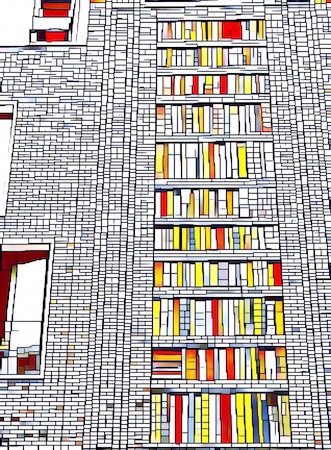
PLEASE NOTE: This is currently being re-formatted
Definition
Making software that celebrates creativity
- “And why write about it? Because this period of translation and exploration has just begun for Casual Creative software. It remains uncategorized, falling into a half-dozen different categories on the app store. The focus of thinkers and researchers, both in academia and in industry, remains focussed on “creativity support tools” and the broad, professional productivity tools, like Maya and Photoshop, while this area remains unexamined. And, for a field of such seemingly simple pieces of software, there’s a lot to examine.”
Wondering - if creativity is the new normal, is this kind of software enabling us to think through concepts, kind of like the way artists and designers use sketches to work through a concept before committing it to a more high-fidelity version. In this vein, I wonder if the idea of a casual creator can branch out and differentiate casual creators from those who use this type of software as a way to wireframe or rapid-prototype ideas before committing heavier resources to them.
*“Why do we want “normal” people to be creative?”
Do we want normal people to be creative or is creative just the new normal?
Creativity
Making software that celebrates creativity
*“This dichotomy is frequently characterized as the “Big C, Little c” creativity. ¬†A child playing with paints is being “creative”; Mozart, while composing a symphony, is being “Creative”. ¬†Presumably, if Mozart played with paints as a child, he, too, was little-c “creative” in those moments. ¬†James Kauffman extends that to 4 Cs, including creativity in the learning process and professional, but not transformative, creativity.”
I find this problematic in that it creates “classes” of creativity that may in fact discount certain aspects of creativity or certain acts of creativity, simply because one is a child or an adult. It can also have an effect of limiting the types of people and knowledge domains that can be creative, which I also find problematic.
*“It’s also telling that a lot of the creativity research is sponsored by the military, with the goal of enhancing workflow and generating better ideas”
I don’t find this surprising, given that creativity is largely about being able to find less-obvious solutions to problems within given constraints.
*“game is about pleasure, not productivity”
Unless it’s both, like in the case of FoldIT, an online proline folding game, whose outputs actually help inform research for curing diseases. Phyllo (from McGill university is another example. http://phylo.cs.mcgill.ca/
Evolution of the Discipline
Digital Practice as Meaning Making in Archaeology
*“Far from being a definitive statement, we see these articles as being the opening words of a conversation that will continue indefinitely and which will provoke new ways of thinking about our discipline and those that work within it.”
Wondering - It seems odd to have to make a statement such as this, since any discipline should always be actively engaged in the discourse surrounding its own evolution, lest it becomes out of touch with the world that surrounds it, and loses relevance and the ability to effectively do research an provide outputs that can be shared in meaningful ways.